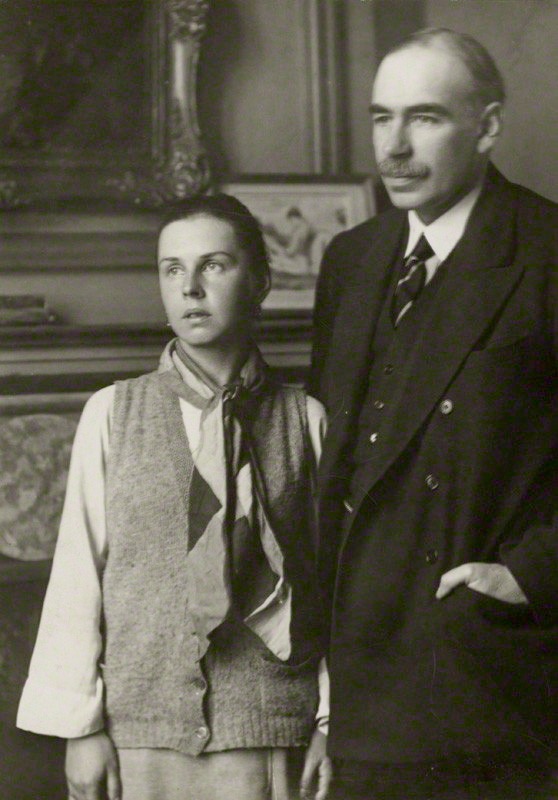The Economic Consequences of Peace
War, the ultimate failure of politicians, is sometimes forged in peace.
5/3/20244 دقيقة قراءة


To be a fan of history, is to be a fan of military history. Our world today has been shaped by the wars of the past, and the 20th century saw humanity find new levels of devastation and depravity. We are still dealing with the consequences.
Both the current conflicts in the Middle East and Ukraine can be directly linked to World War II.
World War II was the largest war we ever fought, with an estimated 68-75 million people killed. Although political movements such as Naziism and Communism were leading causes of the war, one can easily draw a direct line between World War Two and its predecessor.
The Treaty of Versailles concluded World War I, or "The Great War" as it was known at the time. It was a part of the Paris Peace Conference, a series of diplomatic meetings that took place over 1919 and 1920. The Paris Peace Conference also created the League of Nations (the pre-cursor to the UN) and the Treaty of Sèvres, which saw the dismemberment of the Ottoman Empire.
The Treaty of Versailles has been widely attributed as one of the leading causes of World War Two. In particular, the punitive terms imposed on Germany are regarded as giving rise to the Nazi party. Hitler himself, continually cited them as a humiliation and betrayal of the German people.
Ferdinand Foch the commander of the French forces however, thought that the treaty was not imposing enough and remarked prophetically, "This is not peace. It is an Armistice for twenty years".




Keynes with his wife Lydia Lopokova
Pic by By Walter Benington
This is not peace. It is an armistice for twenty years.
- Ferdinand Foch
Cambridge University, pic by Jean Luc Bezanet


The Treaty was made in order to bring 20 million Germans to their deaths and to ruin the German nation
Adolf Hitler
Regarding the "Council of Four", the four heads of state who essentially decided the terms of the treaty, Keynes was particularly scathing of two:
Georges Clemenceau Premier of France
"He is without generosity or remorse in negotiation, that there is no advantage he will not take of you, and no extent to which he will not demean himself for profit, that he is without honour, pride, or mercy"
Woodrow Wilson, President of the USA
"He had no plan, no scheme, no constructive ideas whatever for clothing with the flesh of life the commandments which he had thundered from the White House. ... Not only was he ill-informed, but his mind was slow and unadaptable"
His warnings were largely disregarded by the political leaderships of the time, many of whom just wanted the whole thing to be over. Unfortunately, the following decades proved both Keynes, and Ferdinand Foch, to be correct.
The rest, as they say, is history.
One man who was present at the Paris Peace Conference was John Maynard Keynes (1883-1946).
Keynes was a British economist who was sent to the conference as a representative of the British Treasury. His ideas had a profound impact on economic theory and policy, and he is widely regarded as one of the most influential economists of the 20th century.
His 1919 book, "The Economic Consequences of the Peace" is a thought-provoking work, providing a highly critical analysis of the Treaty of Versailles and its economic implications on post-World War One Europe.
In it, Keynes highlighted some of the fatal flaws in the treaty that were ignored by the politicians who crafted it.
1. "The Treaty includes no provisions for the economic rehabilitation of Europe - nothing to make the defeated Central Empires into good neighbours, nothing to stabilise the new states of Europe, nothing to reclaim Russia; nor does it promote in any way a compact of economic solidarity amongst the Allies themselves; no arrangement was reached at Paris for restoring the disordered finances of France and Italy, or to adjust the systems of the Old World and the New."
2. "If we aim deliberately at the impoverishment of Central Europe, vengeance, I dare predict, will not limp. Nothing can then delay for very long that final civil war between the forces of Reaction and the despairing convulsions of Revolution, before which the horrors of the late German war will fade into nothing."
3. "The policy of reducing Germany to servitude for a generation, of degrading the lives of millions of human beings, and of depriving a whole nation of happiness should be abhorrent and detestable, - abhorrent and detestable, even if it were possible, even if it enriched ourselves, even if it did not sow the decay of the whole civilised life of Europe."
Keynes argued that the harsh reparations imposed on Germany by the treaty would lead to economic instability and political unrest, ultimately setting the stage for future conflicts.


